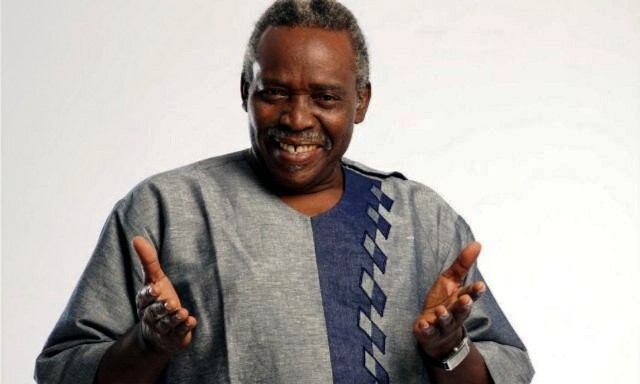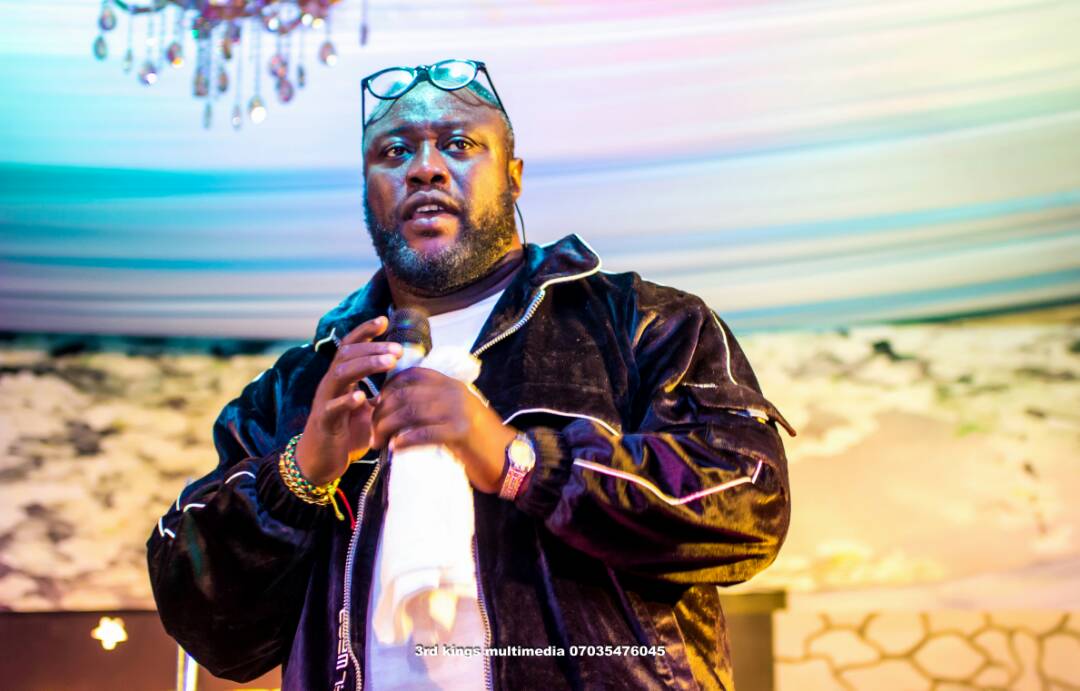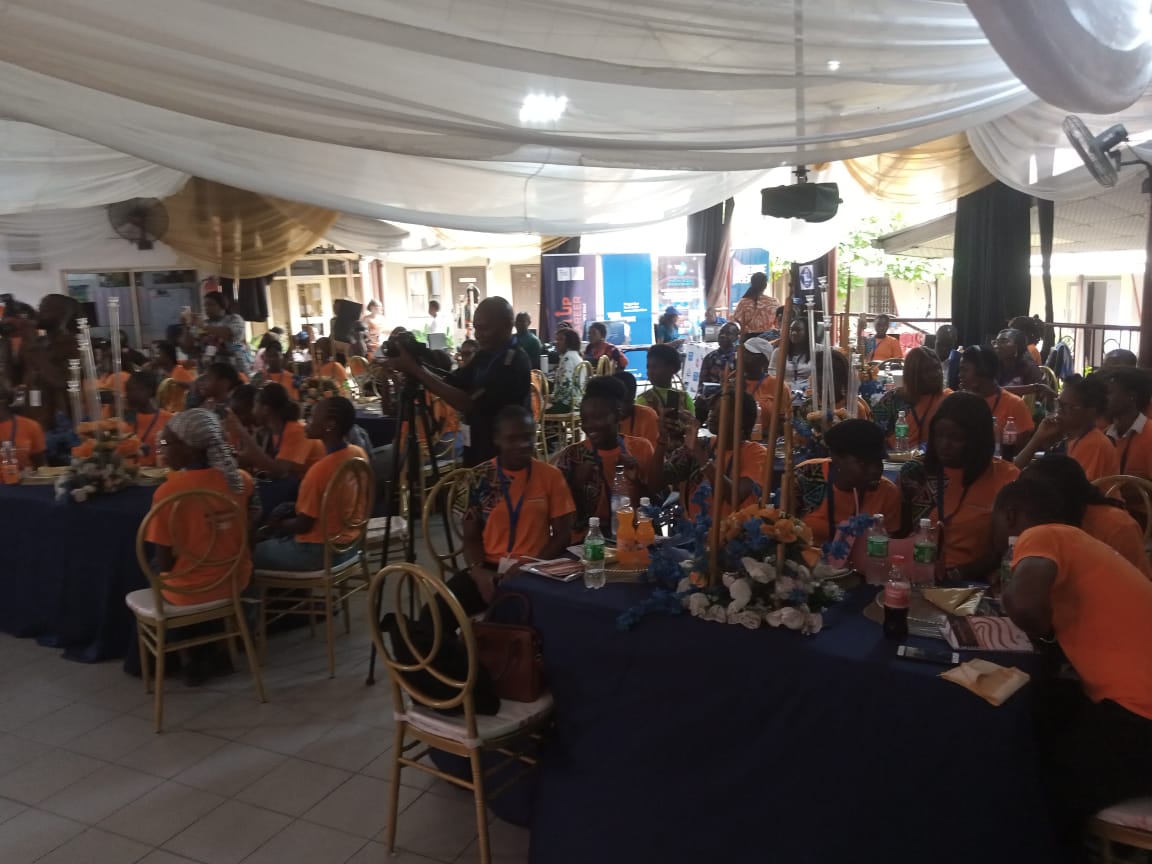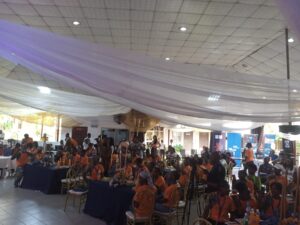Entertainment
Revisiting Nollywood’s Dogged Strides To Success

From the 1957 “Fincho,” 1980 Kadara, 1992 Living in Bondage, 2002 ‘Keeping in Faith’ to the 2014 October 1, the Nigerian film industry has come a longway. There is a winsome era of film making which most Nigerians are oblivious to. An era that has nothing to do with the classic 1992 movie, “Living in Bondage or recent ‘Trip to Jamaica.’
This captivating era dates as far back as 1926 when the earliest feature film was made in Nigeria and featured Nigerian actors in a speaking role. In 1957 Fincho became the first Nigerian film to be shot in colour. Following Nigeria’s Independence in 1960, more cinema houses were established in 1972, the Indigenisation Decree by General Yakubu Gowon made possible the transfer of ownership of abut 300 cinemas from their foreign owners to Nigerians, resulting in more Nigerians actively participating in the Nigerian film growth.
In 1984, ‘Papa Ajasco’ by Wale Adenuga became the first blockbuster, grossing an estimate of 61,000 naira in three days. In 1985, “Mosebolatan” by Moses Olaiya grossed 107,000 naira in five days. Also in the 80s film makers like Adeyemi Afolayan produced classics such as ‘Kadara’ (Destiny), ‘Taxi Driver’ among others.
In 2016, during Ade Love’s 20th Remembrance Celebration his movie Kadara was screened to a number of Nigerians. Watching the classic movie, it is impossible to forget the artist imagery created by Afolayan as far back as 1980 more than the narrative structure, it was the images shots and the production quality that took the older generation through an enlightening journey.
The theatrical and cinematic efforts of the likes of Hubert Ogunde, Taiwo Ajayi Lycett, Olu Jacobs, Tunde Kelani, Adeyemi Afolayan, Ladi Ladebo, Moses Olaiya, Adebayo Salami, Sadiq Daba, Jide Kosoko, Afolabi Adesanya among others played a pivotal role in shaping the film industry which is now popularly called Nollywood.
In 1992, the release of the classic movie living in Bondage kicked off a new era in the Nigerian film industry. This era produced movies that were still referred to as classics, it produced actors that were and are still household names in Nigeria. In the 1990s the Nigerian cinema culture faced a major decline as the home video market boomed. Alaba market became a vital commercial domain becoming the hub of video distribution and finally the centre of piracy in Nigeria.
The 90s birthed movies like Violated, Silent Night, Domitilla, Nneka the Pretty Serpent, Hostages, Blood Money, Out of Bounds and more. Nigerians were introduced to actors who made an impact and are still relevant in the industry such as Genevieve Nnaji, Bimbo Manuel, Eucharia Anunobi, Tony Umez, Saint Obi, Ramsey Noah, Rita Dominic, Kate Henshaw, Emeka Ike, Stephanie Linus, Liz Benson, Pete Edochie, Kenneth Okonkwo, Kanayo O Kanayo, Richard Mofe Damijo, OmotolA Jolade Ekeinde, Bob Manuel Udokwu, Funke Akindele, Bimbo Akintola, Joke Silva and Francis Duru among others.
In the mid 2000s, the home video era experienced a major decline with factors such as piracy and rental shops playing a major role. However in 2004 a new cinema era began with the launch of a series of modern cinema houses by the Silverbird group. The first new wave film to be shown at a modern cinema was Kunle Afolayan’s 2006 “Irapada” which were screened at the Silverbird Gallery Lagos. Ever since then high and small budget movies like Ije, Surulere, The Figurine, The CEO, 93 days, Half of a Yellow Sun, the Meeting, October 1, The Arbitration, etc were screened at various cinemas in Nigeria.
Since the launch of Silverbird Cinemas, new Cinemas like Ozone, Film House and Genesis Deluxe have been launched and are playing important roles in the evolution of the Nigerian film industry. In the 2000s, the industry started witnessing the arrival of new actors, including Nse Ikpe Etim, Majid Michel, Yvonne Nelson, Sudan Peters, Ini Edo, Mike Ezuruonye, Uche Jumbo, Toyin Aimakhu, Mercy Johnson, Jim Iyke, Grace Amah, Desmond Elliot, Chike Ike, Chioma Chukwuka, Queen Nwokoye, Omoni Oboli, among others.
Currently in the 2010s. The Nigerian film Industry has grown and seen the arrival of a new set of actors including Adesua Etomi, Chacha Eke, Kiki Omehi, O. C. Ukeje, Blossom Chukwujekwu, Somkele Idhalama, Beverly Naya, Daniel K. Daniel, Deyemi Okanlawon, Linda Ejiofor, Bayray McNwizu, Kunle Remi, Okey Uzoeshi, Uzor Osimkpa, Tomi Odunsi, Osas Ighodaro, Rahama Sadau and Kemi Lala Akindoju among others.
In recent years, the Nigerian film industry has gone from being just Nollywood to being divided along regional and ethnic line; thus the distinct film industries like Kannywood, Callywood and the Yoruba film industry. Through the years of the industry’s evolution, segregatory terms such as New Nollywood/Cinema movies, Asaba Movies Lactors and Old Nollywood became popular. One major difference between Asaba and new Nollywood movies is the art. Most cinema movies have the perfect blending of cinematic style, technicality, beauty and storytelling.
However the cinema is considered a luxury thus their availability to the mass audience is limited due to the limited availability of these cinema productions. The popularity of ‘Asaba movies’ is constantly on the rise and readily available for mass consumption at a cheaper rate. Its 2017 and the advancement in sound technology, storytelling, technological special effects are proofs that Nollywood have evolved.
The current era has seen the success of various genres including horror, comedy action, thriller and romantic drama.
From conventional movie plots, the Nigerian film industry has moved to experimental and innovative films. The Nigerian film industry has become an instrinsic part of the global film sector. Currently the largest film industry in Africa and producing more films than Hollywood, Nollywood has evolved into the industry with reputable film festivals such as African International Film Festival, Lights Camera Africa, Abuja International Film Festival, Eko International Film Festival, among others.
Nigerian films are also screened at International film festivals such as the Cannes film festival, Toronto film festival among others. The Industry has become more profitable with movies like “The Wedding Party” grossing over 405 million naira in just two months and a Trip to Jamaica” earning a Guinness Book of World record spot for its box office success. The industry has also created quality TV series such as ‘Hush,’ ‘Sons of Caliphate,’ ‘the Governor’ etc. Over the years web platforms like Iroko TV, Ibaka TV and CIX TV that provide paid for Nigeria films in demand have become affordable.
Pay TV entertainment platforms like Africa Magic have also invested in the Nigerian film industry, creating shows and award platforms that further projects the industry in good light.
There are days when disappointing movies like A Trip to Jamaica, Gold Digging, Bloggers Wife, Keeping my Man and Three Wise men find their ways to Nigerian Cinemas. There are days when film makers decide to create African adaptations of foreign series instead of our local stories in those days, Nollywood disappoints thousands of its followers. But despite all of its disappointing moments the Nigerian film industry is one that has evolved and is still evolving.
-Source: Pulse.ng
Entertainment
World Music Day: Alliance Française Port Harcourt Showcases Talents

The Garden City of Rivers State Port Harcourt at the weekend joined other parts of the world to celebrate the World Music Day, 2025, as Alliance Française showcases talents.
The event which is internationally known as Fête de la musique was held at cultural hall of the Alliance Française was a remarkable concert with memorable experience.
The event brought together music lovers, students, Artistes and members of the community For an exciting evening live performances and cultural exchange.
The Tide Entertainment reports that the world Music Day, which was created 1982 in France by the then Minister of culture, Jack Lang, ‘ Fête de la Musique’ is now celebrated in more than 100 countries every 21st June, marking the first day of summer with free concerts and musical showcases in public spaces.
In Port Harcourt, the Alliance Française honoured the tradition by spotlighting four(4) emerging artistes offering a platform to young talents shaping the city’s contemporary scene.
The audience enjoyed an unforgettable moments as they were entertained by the powerful performances from Preach A, who is known for blending fitness culture with spoken words and rhythm.
Also, artiste Emmayany delivering a vibrant fusion of afrobeat and afro pop. A singer, song writer and a performing artiste with a distinct sound.
Others were Amarachy Uko, a sensational singer with passion for soul , R&B, pop music and afrobeat.
While DJ Prospel closed the night with an energetic DJ set that got the entire hall dancing.
Earlier, the Director, Alliance Française, Port Harcourt Mrs Marina Lacal high lighted the mission of the Alliance Française saying that the event was more than a concert.
According to her, the event was put together by the Alliance Française to promote cultural diversity and foster artistic expression by connecting a long standing French tradition with creativity of the local music scene, adding that the event offerers an avenue for dialogue between culture and generations.
She stated that the event is used to promote professional and bring amateur artistes to limelight via the platform of the Alliance Française which is aimed at promoting the French Language through cultural heritage.
She explained that the celebration is also a broader series of Fête de la musique activities organized by the 10 Alliance Française across Nigeria in sync with concerts held in France and around the world simultaneously.
She further noted that the occasion reaffirms the role of Alliance Française as a cultural bridge, one where French heritage meets the pulses of Nigerian youth.
It would be recalled that no fewer than 19 artistes applied to perform at the event in Port Harcourt, but only four got approval for appearance.
Entertainment
PMAN Set To Implement Performance Levy ‘Tomorrow

The Governor of the Performing Musicians Employer’s Association of Nigeria (PMAN), Rivers State chapter, Comrade Moses Mabadeje popularly known as Mozy B said that the body has announced plans to implement performance Levy on artistes in the state with effect from 21st June.
This was carried in a statement released to The Tide Entertainment, yesterday by the Deputy Governor of the association, Comrade Abiye Howells.
According to the Governor, the announcement was made by PMAN, the only governing body that regulates the music profession in Nigeria, as authorized by the Government of Nigeria, in line with the Trade Union Act.
He stated that those affected by the Levy include (Non members)bands, groups, Hotels, Bars, lounges, Event Centres, show organizers, promoters and other stakeholders hosting events which feature live music performances within the State.
However, the Levy does not apply to members of the Performing Musicians Employer’s Association of Nigeria. (PMAN).
Comrade Moses Mabadeje, explained that this drive is aimed at financing the association and supporting the welfare and interest of musicians as outlined in Article 8 of the PMAN constitution as amended (2023). Consequently, a PMAN task force has been set up to enforce and swing into action to effect this move.
He further said that event organizers, promoters and owners of event centers are expected to comply with this regulation as the Governor has urged stakeholders to collaborate with the association to ensure the successful implementation of the levy and the peaceful co-existence between PMAN and Stockholders.
Nancy Briggs
Entertainment
“French Up Your Career” PH, 2025 :Consul General Of France Harps On Proficiency In French

The Consul, General of France in Nigeria, Laurent Favier has encouraged French Learners to improve their skills on the language, as there are lots of opportunities up for grabs on the job market with fluency in French Language, saying that there are many other career paths which are often less well known to learners of French.
 Participants at the “French Up Your Career” event held in Port Harcourt.
Participants at the “French Up Your Career” event held in Port Harcourt.
Favier who disclosed this during the just concluded third edition of the seminar tagged “French Up Your Career” organized by Alliance
Française, Port Harcourt explained that learning French doesn’t mean adding a language to your resume. It rather provides learners with new opportunities. Irrespective of their area of interest, be it diplomatic and International relations, international development, translation and Interpretation or journalism.
According to the Consul General, it was important to create awareness for young Nigerians in Port Harcourt who desire to have better understanding of how been fluent in French can create diverse career opportunities for users of the languages in Nigeria and the world at large, emphasizing that proficiency in French could possibly make learner a bridge between Nigeria and fast-developing regions.
“You previously heard this morning about how you can improve your French skills. This afternoon you will discover how being fluent in French can provide a significant edge on the job market and lead to professional careers that you may not have even considered before,”
“This event comes at the right time, as it launches the celebration of the richness and diversity of French-speaking cultures, which will mobilize us for more than a month throughout Nigeria and alongside other French-speaking countries,” Favier added.
He further highlighted that French is spoken by over 300 million people across the world, saying that, it’s one of the official languages of the United Nations, the European Union, and the African Union.
“There are many neighbouring African countries to Nigeria ,who have French as one of their primary languages of communication including Cameroon, Chad, and the Democratic Republic of the Congo. So, what does this mean for you as students here in Nigeria?” He asked
“These sectors in which the French Embassy is often mobilized are the business and marketing field for example, as French is often the preferred language in many multinational companies, particularly those in the energy, oil and telecommunications sectors. I’m thinking as well in technology and IT,” he said
He noted that French-speaking countries in Africa are investing heavily in tech, innovation, and infrastructure, revealing that companies in Tech are looking for bilingual professionals to assist with software localization, customer support, and managing projects in French-speaking regions.
“The French embassy is not only mobilized to help learners discover promising sectors. We are also providing our support and expertise in
training teachers and optimizing university programs,” he summed up
Also, the linguistics cooperation attaché, French Embassy in Nigeria, Magaly Losange, who also gave a lecture at the seminar, in an interview with Newsmen said that the main purpose of the seminar was to be more informative and supportive to those who want to make a skill out of French Language,saying that as the linguistics cooperation attaché of the French Embassy it is her duty to promote French language through culture.
She cited traditional stereotypes as a major challenge affecting the growth and development of French in Nigeria, as school, teachers at the primary and secondary level in most cases teach French using the traditional way, where students learn French, but could not put words and grammar together as a skill for communicate.
“French is important. I don’t see French as colonization, l see French as a key to embrace globalization, l hope that learners will be inspired and ready to embrace the global village,” Losange said.
She however said that the French Embassy is working to ensure that equipments to facilitate the learning of French is put in place to enable learners improve their skills fast, which in two to three years learners should be able to communicate with French, advising learners to be intentional with learning the language, through social media and other workable devices to advance their skills for certification and better opportunities.
Highlight of the event which had about 250 participants in attendance was the eloquence award ceremony where students were awarded for their eloquence in French language by the Director, Alliance Française Port Harcourt, Mrs.Marina Lacal alongside the Linguistics cooperation attaché of the French Embassy in Nigeria, Magaly Losange.
After two edition of the seminar it was the turn of the Alliance Française, Port Harcourt to host the Third edition.
It would be recalled that the first edition of ” “French Up Your Career” event was organized at the Alliance Française Lagos on October 23, the second one at UNILAG on November 24, 2024 respectfully.

